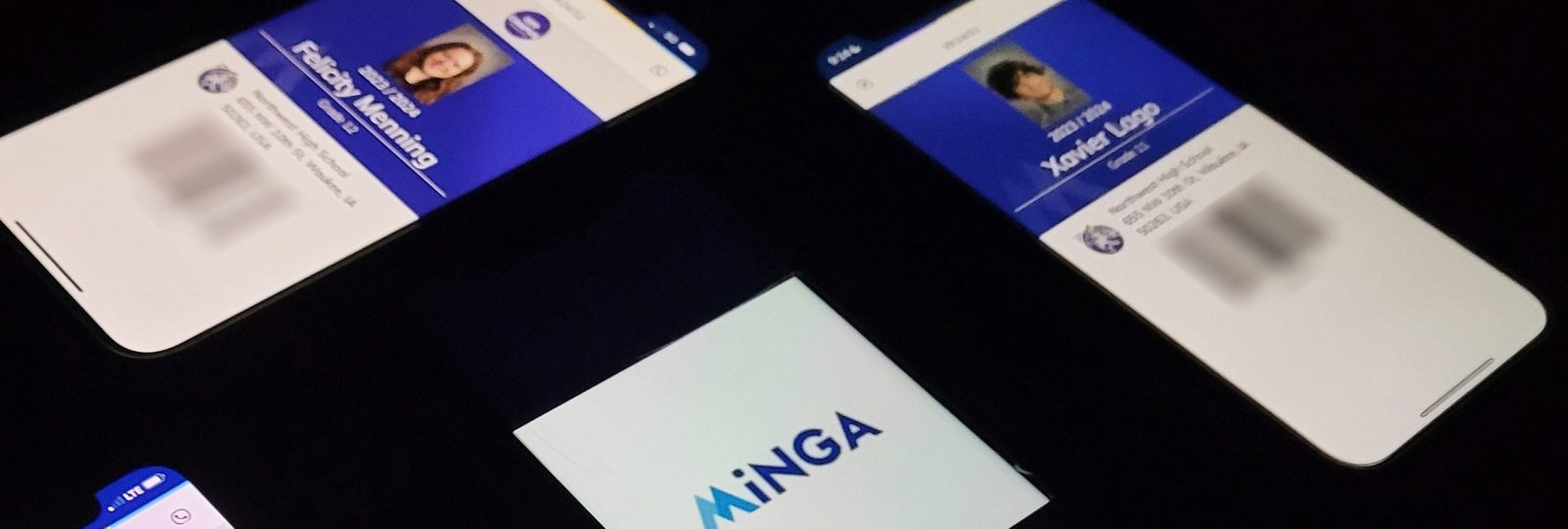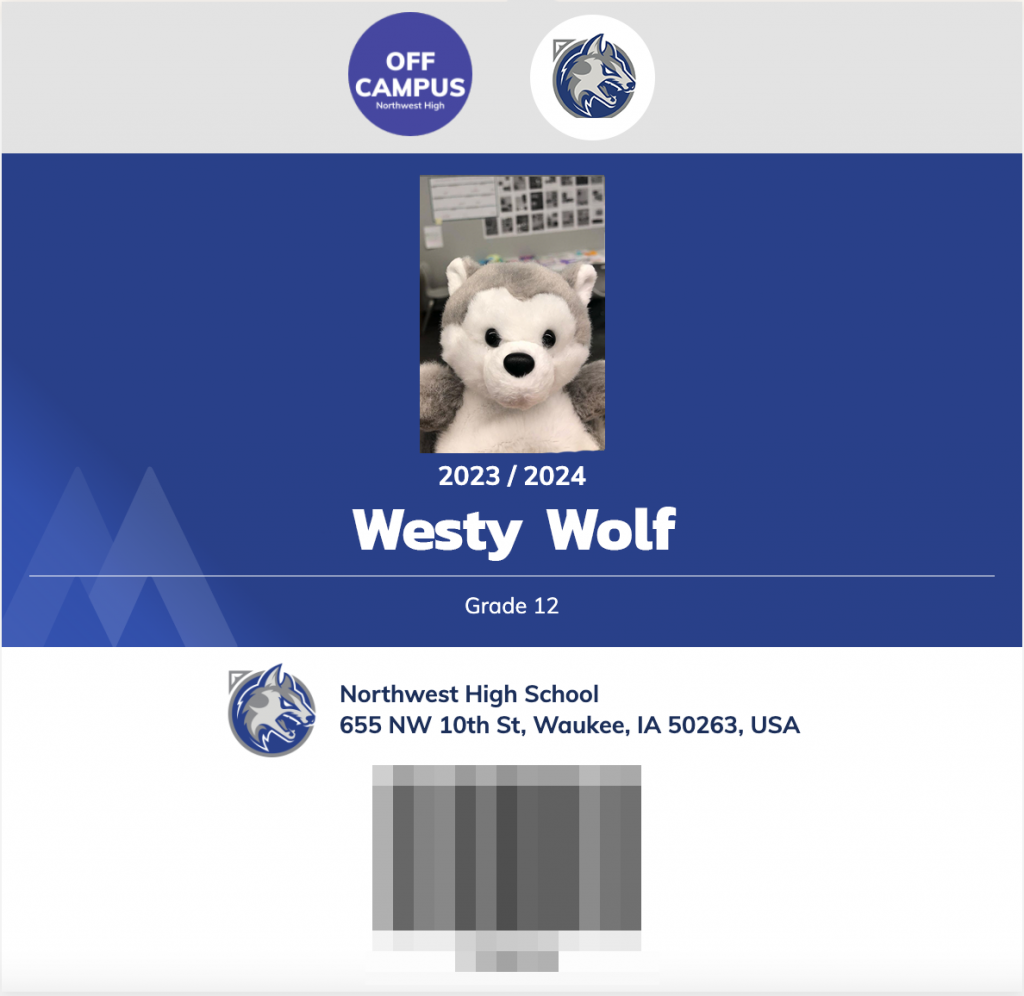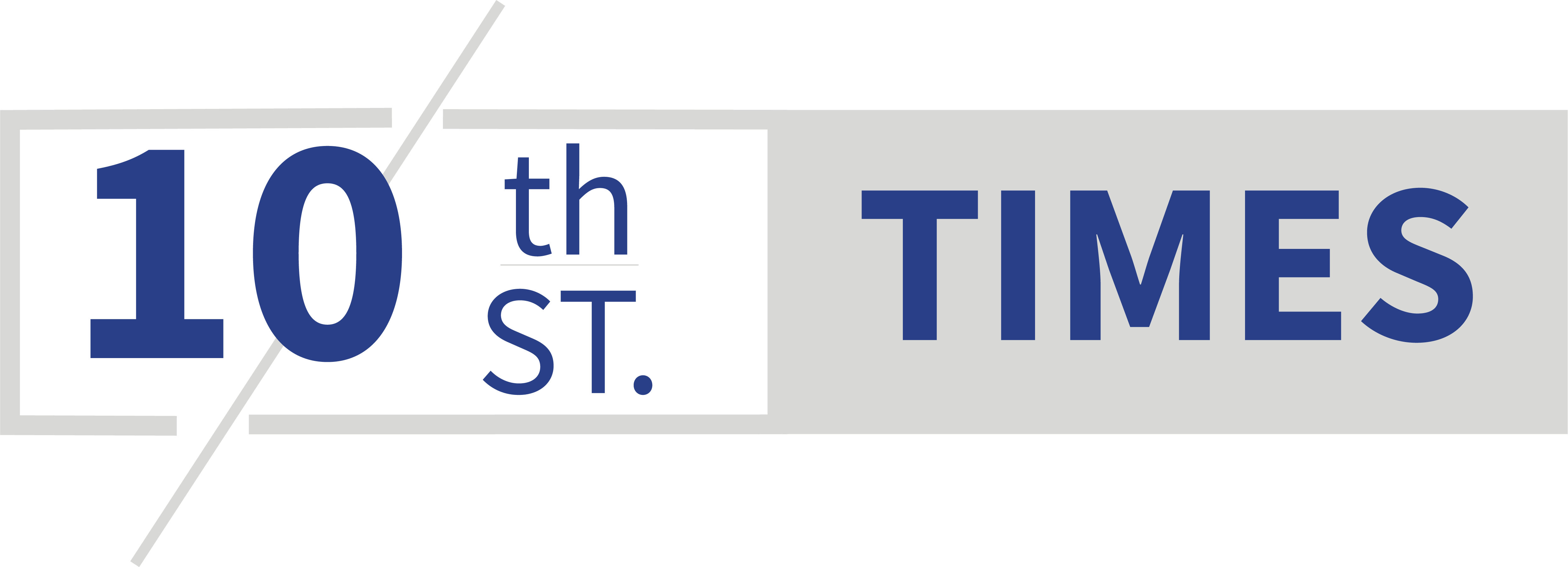Minga: Northwest’s New Best Friend
Share this story

During the advisory lesson on Wednesday, November 15th, Northwest administration released a video introducing the new campus management program, Minga, to staff and students.
Looking for some quick clarification on Minga? See the FAQ at the bottom of this article.
Minga Basics

Minga is intended to keep the Northwest campus safe and well-monitored. Its main function right now is the check-in check-out system.
Any time after 8:10 a.m., students entering the building will have to scan their Minga ID in the office. A student’s Minga ID contains a barcode that represents their school ID number. These IDs can be personalized to give students special permissions. Some examples are an off-campus sticker for students with hybrid classes, APEX or open blocks and a sticker that represents the student activity pass. In the future, administration may create new stickers as student needs arise.
Minga also has hall pass features that Northwest will fully implement down the line.
The inception of Minga
The WCSD first discovered Minga through the district’s school picture company, Lifetouch. Northwest is the trial school for the district. If Minga is implemented successfully at Northwest, it may be rolled out to other Waukee schools such as Waukee High School and Prairieview.
Because Minga is in the trial stage at Northwest, administration is still working on implementing many of its features. Students and staff are not expected to use the advanced features of Minga, such as hall passes, until the trial period is over. After the initial testing, administration plans to meet with staff to determine what works best for Minga at Northwest. Once these decisions have been made, there will be another advisory lesson to explain the rest of Minga’s features.
In these early stages of Minga at Northwest, there has been increased traffic in the attendance office. Starting at 8:10 a.m., the doors are locked and students are filtered through the office to scan their Minga ID and they are counted as tardy. Because of this, many students are worried that Minga will delay their already busy schedules.
“If I’m in a rush, I’ll have to stop, pull my phone out, open the app, do all that… I feel like just having a whole app was a bit much,” Ava Hohenadel, APEX student and Northwest junior described.
Northwest Principal Mr. Ross assures students that this issue will resolve itself. He described, “I think as we’ve seen over the last day, where people have to download the app, there’s a little bit of a backup. [But] once everybody has [Minga], it’s gonna go smoothly.”
As Northwest adjusts to this app, there has been some resistance and frustration. Students who were accustomed to a more lenient attendance system are now facing the reality of Minga.
“It’s a minor inconvenience to students… They’re used to this laissez-faire attitude surrounding attendance… but I hope they understand that the purpose is to help other people out and make some people’s jobs easier,” Northwest social studies teacher Mr. Mickelson described.

The issues that led to Minga
With Northwest being such a large school, safety is a primary concern. Administrators saw a need for a new campus management system because of issues with students violating closed campus or skipping classes. The need for a system like Minga has been discussed among administrators for years.
Many students and staff believe that the Minga system is a good solution to the security issues at Northwest. Especially in a nation where school violence is on the rise, knowing the location and well-being of students at Northwest is necessary.
“The main idea [of Minga] isn’t being some police state,” Mr. Ross explained,. “The reality is, sadly, there’s not one person in this building that knows every single kid and knows who belongs here and who doesn’t. This is absolutely going to make us safer and more secure… we’re gonna know the people coming in our doors, that our students as opposed to someone who could potentially mean harm. “
Minga is also meant to remove the stress that morning attendance puts on teachers. With the old system, teachers had to manually change the attendance of a student who came in late, which could interfere with their lessons. Now, Minga does this automatically, freeing up more time for teachers.
German teacher Frau Baldi said, “I think it’s nice to not have to go back and change attendance. Because sometimes students ask why it’s non-verified or ‘why is my mom texting me,’ and I have to go back and change it to tardy. In that instance, I think it’s a lot easier.”
Hall Passes
One of Minga’s features is hall passes. In the Minga app, students canwill create a hall pass before leaving the room. Then a timer will start counting down until the student returns to class. As of now, the timer is set to the default at five minutes. Administration can change this timer, which they will workshop during the Minga trial period.
This feature has not officially been implemented at Northwest, but it will be after administration has educated staff on how to use the hall pass and bathroom break functions.
Many students are concerned with the time limits for bathroom breaks, worrying that five minutes would not be enough time. However, Mr. Ross and other administrators confirmed that students will not be penalized for just a few extra minutes in the bathroom. The system is intended to help campus monitors know which students are allowed to be out and which students are skipping, not to rush students going to the bathroom.
“It will help from a massive security standpoint,” Northwest Campus Monitor Cameron Hansen stated. “[Minga] is making sure kids who are supposed to be leaving are leaving and the kids who are supposed to be here are staying.”
Mr. Ross explained that the hall pass system will also eliminate confusion with teachers having different bathroom pass practices. He described, “We [will] have a systemic way throughout the entire building, every classroom, for teachers to do things the same… So that’s the idea, consistency.”
A criticism students have about Minga is that it interferes with the school policy to put away phones during learning times. Now, students have to pull out their phones or open a new tab to go to the bathroom, a task that previously would have been done by asking the teacher.
App Reviews and Security Concerns
As of now, the Minga app has a review of 2.4 stars on both Google Play and the App Store. Many reviews were made by students who were discontent with the app’s usage in their schools. These reviews held many concerns regarding the security of the app.
In the Google Play Store, Minga’s app permissions are as follows: calendar access to read calendar events and details, camera access to take photos and videos, microphone access to record audio, device storage access and other basic diagnostic permissions.
Some students find these permissions concerning and do not feel comfortable having this app on their personal devices.
Mr. Ross reassured students that because Minga has invested so much into their technology, it is in their best interest to make sure the app is safe for students. He stated, “I would say [Minga] is as secure if not more secure than any other app students are downloading.”
Minga App Alternatives
Luckily for students who cannot or do not want to download the Minga app, Northwest administration is working on alternative options. Already, students have the option to access Minga in the browser of their school computers if they do not want to download the Minga app. The barcode on the bottom of students’ school laptops or found in their account in PowerSchool also represents their ID numbers, which can serve as a substitute for the Minga barcode.
Administration has also considered physical IDs for students who need them for whatever reason. However, as of now, Northwest is not planning to use physical IDs for all students. Administrators plan to prioritize the use of Minga instead.
Comparison to Other Schools
Across the country, many high schools require all students to check in with a program like Minga when they arrive. Some Des Moines metro schools use similar systems to keep track of student attendance. Valley High School in West Des Moines requires students to wear physical ID cards at all times while they are at school. Both high schools in the Ankeny Community School District are planning to implement Minga soon.
Minga FAQ
Q: Will students who don’t have a first block need to check in when they arrive?
A: Yes. Any student entering the building after 8:10 a.m. will need to check in with Minga.
Q: Will students who have their last block(s) open need to check out before they leave?
A: No. Their school day is over so they are free to leave without using Minga.
Q: Will I have to check in/out with Minga for a doctor’s appointment?
A: Yes.
Q: How will Minga be enforced?
A: Scanning your Minga ID will be required to check in to the building if you enter after 8:10 am. If you do not have a phone and/or laptop with you, the office staff will figure something else out so you will be able to check in with Minga.
Q: What happens if I don’t make it back from the bathroom in five minutes?
A: You will not be penalized for taking a few extra minutes in the bathroom. The main purpose of the bathroom pass is for hall monitors to know who is allowed to be out and who is skipping. If a hall monitor sees a student out walking around and uses Minga to find out that they do not have a pass, they can start a conversation to see what is going on.
Q: What are Minga Points for?
A: Administration is not sure what they will do with Minga Points at the current time. They may implement something in the future.
